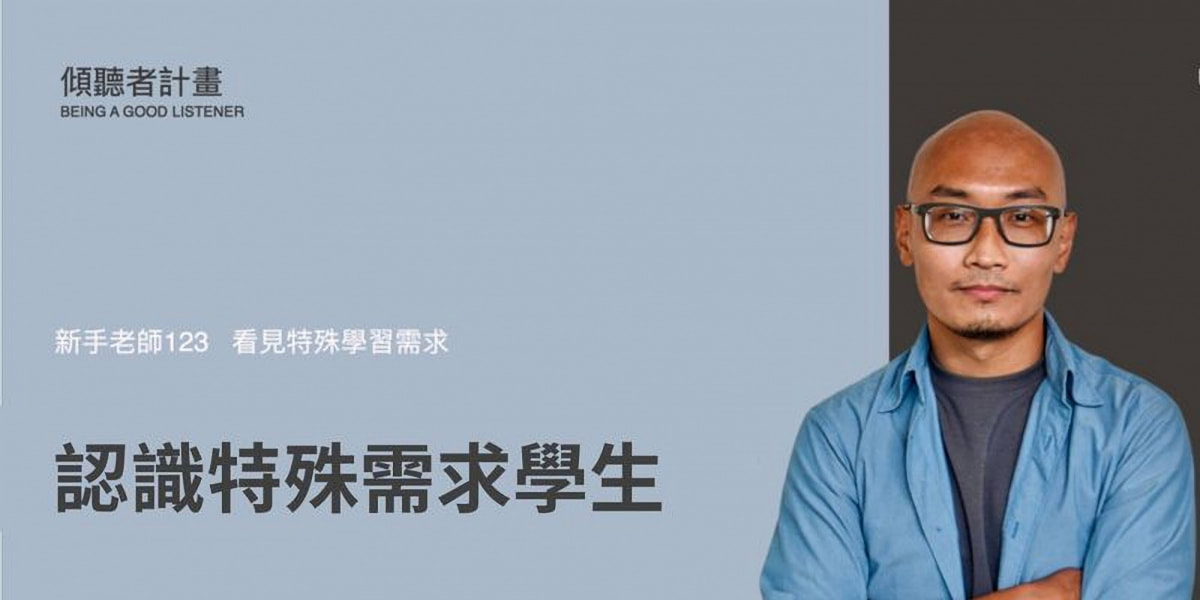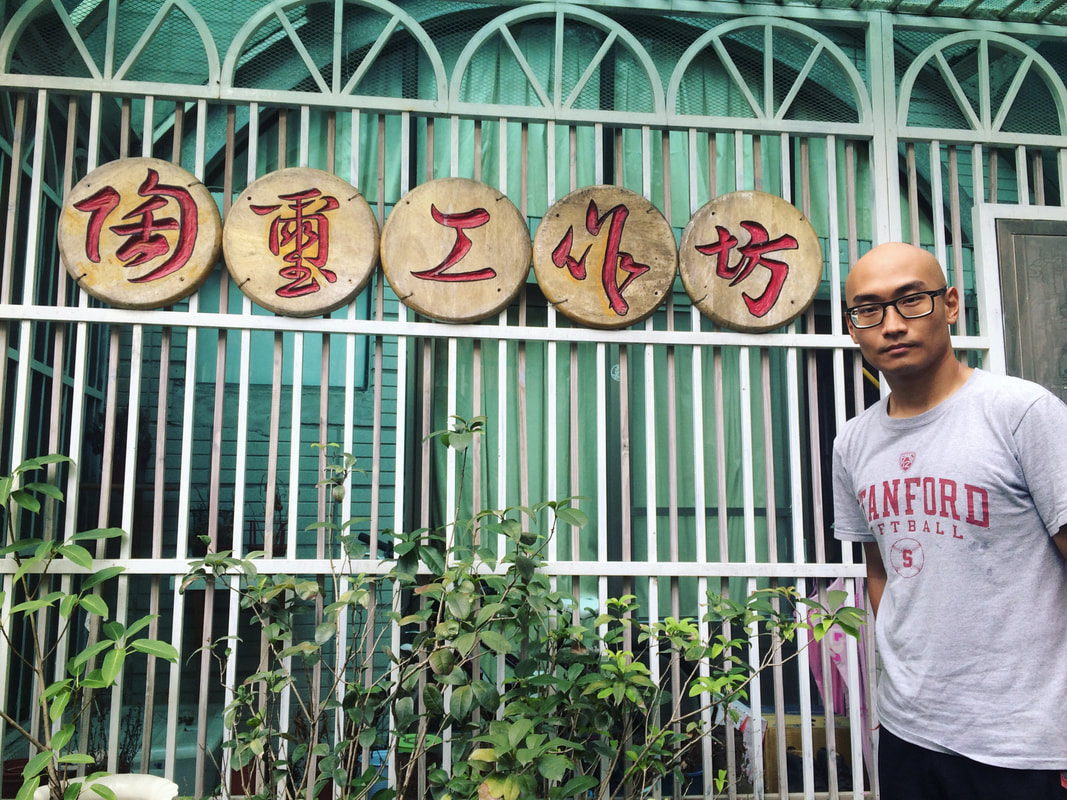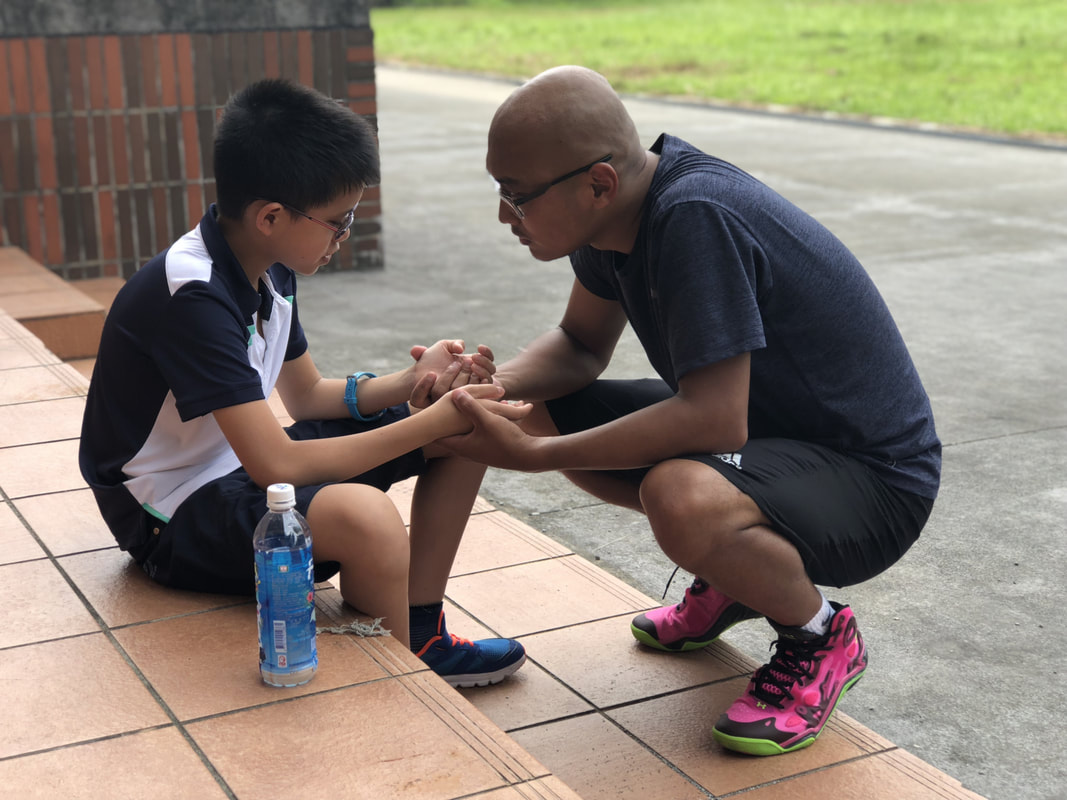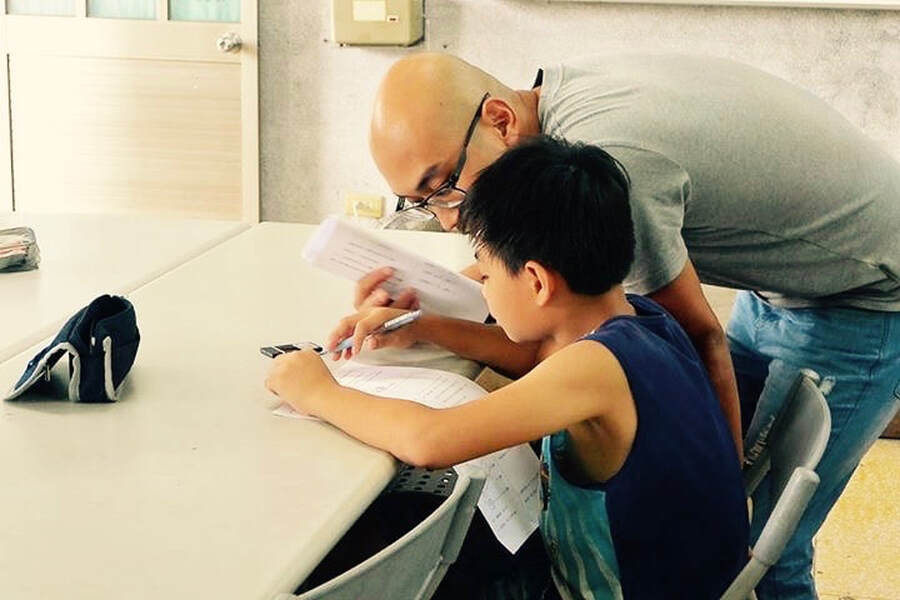Since the launch of “The Listener” program in August 2021, the message from the series on “Introduction to Special Education” has resonated with many people. The teacher, Freddy Cyu, who recorded this series had clear ADHD symptoms as a child. He spent a lot of time with special needs children during his college years and learned about the gap between families and the education system. He then established a special education center. “Simply trying to change the children is not enough, we must also influence the environment around them.” said Cyu. Cyu believes his experience can be inspiring to all, including those without special needs students around them; we may all be prompted to create a more friendly environment.
Understanding the Needs of Special Education Students; Become their Life Coach
Original article written in Chinese by Freddy Cyu, Founder of Tao Xi Gong Zuo Fang and Vice Principal of BTS Education School
English translation by Angela Chin
English translation by Angela Chin
Over the years, I have often been asked by parents if their children should get officially certified as special needs children. Many parents initially resist the idea. They worry that their children may be discriminated against in school, and the stigma may be permanent. For parents who are new to the concept and to our education system, such concerns are understandable. In the greater environment, stigmatization of special education is unavoidable.
Special Education is inherently a form of differential treatment!
Special education focuses on the two ends of the normal distribution bell curve, and children in these situations are easily neglected because they are not mainstream, and their needs cannot be easily met under normal circumstances. To address these special characteristics requires more flexibility and individualized guidance to create the so-called least restrictive environment (LRE)1 to allow these children’s talents to be developed. Medical diagnosis is only one way to learn about these children. In Taiwan, one needs to go through the medical system to be certified as a special education student. In addition to that, the education system must also evaluate the child’s need for special education and individualized support and services. The key is to have a focus on each child’s needs, and apply various methods and a holistic approach, to properly plan for support and appropriate assistance.
Special Education is inherently a form of differential treatment!
Special education focuses on the two ends of the normal distribution bell curve, and children in these situations are easily neglected because they are not mainstream, and their needs cannot be easily met under normal circumstances. To address these special characteristics requires more flexibility and individualized guidance to create the so-called least restrictive environment (LRE)1 to allow these children’s talents to be developed. Medical diagnosis is only one way to learn about these children. In Taiwan, one needs to go through the medical system to be certified as a special education student. In addition to that, the education system must also evaluate the child’s need for special education and individualized support and services. The key is to have a focus on each child’s needs, and apply various methods and a holistic approach, to properly plan for support and appropriate assistance.
Grownups must not be threatened by the stigma
The mission of education is to address every child’s individual needs. In an ideal world every child’s education should be customized. If you agree that everyone is unique, then you may deep down in your heart accept a child and escape the stigma of special education! The first step of providing appropriate support is to have a holistic understanding of the child, and that is the objective of the medical diagnosis and education assessment. Although such diagnosis and assessment might not seem necessary, they are likely catalysts for change. To me, even without diagnosis and assessment, we should always provide what the children need. To adequately do so, we must fully understand children.
For the parents of special needs children, a healthy mindset is very important. In terms of parenting, I believe the following are key points to providing long term stable support to children with special needs.
1. Respect the uniqueness of each child
Every child is different, avoid unnecessary comparisons because no one likes to be compared. Two autistic children are different even if they are twins. To respect one’s uniqueness means to not apply someone else’s value upon your child. Other parenting techniques can be used as reference, but never simply replicated and applied. Every person has a unique government identification number, and every person has a unique personal code which needs patience to decode.
2. The mark of “Special Education” is merely a way to get to know the child
Parents or teachers often say that because my child is autistic, “he will not …”, or because my child is hyperactive, “he will…”. Special education is just a way for us to know the children. Do not exaggerate or understate the situation. Everyone has a different personality and grows up in a different environment. Do not over-simplify a child’s behavior by lumping them into special education, and don’t limit the possibility of a child in the name of special education!
3. Changes takes time, even if it seems trivial to you
Changes are not 100% predictable. Grownups are often discouraged when they cannot see any change after investing a lot of effort. However, it does not mean the child has not changed. My counseling experience tells me that as long as we can be patient and persistently do the right things, changes do happen.
4. Create an environment that allows mistakes
Everyone makes mistakes in the process of growth; special education students making mistakes in interpersonal relationships is especially common. If we can help them turn their mistakes into their guides for future behavior, then they will be able to gradually adjust themselves. Grownups must remember to control their natural immediate reactions to mistakes. Children will miss out on precious opportunities to learn and improve if they only face blame and punishment for mistakes.
5. Give them the opportunity to make their own decisions
Sometimes grownups lack confidence in the child’s ability, other times they can be overprotective. These conditions lead to a child’s dependency and lack of confidence. Therefore, grownups should not drive the children’s daily agenda and should not make all their decisions for them. Research and my own coaching experience tell me that the ability to self-determine affects a child’s self-efficacy. It also affects one’s life satisfaction and happiness! This skill can be cultivated from an early age.
The mission of education is to address every child’s individual needs. In an ideal world every child’s education should be customized. If you agree that everyone is unique, then you may deep down in your heart accept a child and escape the stigma of special education! The first step of providing appropriate support is to have a holistic understanding of the child, and that is the objective of the medical diagnosis and education assessment. Although such diagnosis and assessment might not seem necessary, they are likely catalysts for change. To me, even without diagnosis and assessment, we should always provide what the children need. To adequately do so, we must fully understand children.
For the parents of special needs children, a healthy mindset is very important. In terms of parenting, I believe the following are key points to providing long term stable support to children with special needs.
1. Respect the uniqueness of each child
Every child is different, avoid unnecessary comparisons because no one likes to be compared. Two autistic children are different even if they are twins. To respect one’s uniqueness means to not apply someone else’s value upon your child. Other parenting techniques can be used as reference, but never simply replicated and applied. Every person has a unique government identification number, and every person has a unique personal code which needs patience to decode.
2. The mark of “Special Education” is merely a way to get to know the child
Parents or teachers often say that because my child is autistic, “he will not …”, or because my child is hyperactive, “he will…”. Special education is just a way for us to know the children. Do not exaggerate or understate the situation. Everyone has a different personality and grows up in a different environment. Do not over-simplify a child’s behavior by lumping them into special education, and don’t limit the possibility of a child in the name of special education!
3. Changes takes time, even if it seems trivial to you
Changes are not 100% predictable. Grownups are often discouraged when they cannot see any change after investing a lot of effort. However, it does not mean the child has not changed. My counseling experience tells me that as long as we can be patient and persistently do the right things, changes do happen.
4. Create an environment that allows mistakes
Everyone makes mistakes in the process of growth; special education students making mistakes in interpersonal relationships is especially common. If we can help them turn their mistakes into their guides for future behavior, then they will be able to gradually adjust themselves. Grownups must remember to control their natural immediate reactions to mistakes. Children will miss out on precious opportunities to learn and improve if they only face blame and punishment for mistakes.
5. Give them the opportunity to make their own decisions
Sometimes grownups lack confidence in the child’s ability, other times they can be overprotective. These conditions lead to a child’s dependency and lack of confidence. Therefore, grownups should not drive the children’s daily agenda and should not make all their decisions for them. Research and my own coaching experience tell me that the ability to self-determine affects a child’s self-efficacy. It also affects one’s life satisfaction and happiness! This skill can be cultivated from an early age.
In addition to focusing on parenting strategies and methods, we cannot neglect the impact of the environment on children with special needs. Parents are at the helm of the family environment, and teachers are the guardians of the classroom and school environment. In the environment of an inclusion program, teachers are absolutely capable and responsible for influencing this setting.
When a teacher consciously guides everyone to get along with people who are different and adapt diverse perspectives, then there is a chance to create a friendly learning environment. From past experience in classroom management, the following three points call for special attention:
1. Re-establish the concept of fairness, fairness is not absolute equality
We have often heard children complaining about teachers being unfair by giving special attention and treatment to special education students. Worrying about making exceptions for special education students being perceived as unfair inhibits teachers from implementing individualized education. In fact, special education is “positive differential treatment”. Its objective is not absolute equality, but to provide support that is customized to an individual’s needs. Do you think it is fair to provide the same support to all children with different needs and different capabilities, and hold them to the same standards? If we can overcome the idea of absolute equality but instead focus on every child’s individual need, the fairness concept in children’s mind can then be reconstructed.
2. Do not allow “Special Education” to become an excuse
Do not use “Special Education” to justify misbehavior. We must differentiate “innocent behavior” and “wrong behavior”. "Innocent behavior" refers to the child's uncontrollable behavior at the moment, such as the twitching of Tourette's disease, while the "wrong behavior" is the behavior caused by a wrong motive, such as hitting people because one does not like the way he is being talked to. In conflict management, teachers need to be realistic and take matters for what it is. Let children bear consequences of their actions and learn lessons from natural and logical consequences. When consequences of actions become clear, the learning environment will become orderly. Special education cannot become a talisman or shield for any child.
3. Don’t force kids to help special needs children
A child once told me he hates special education students because growing up he was always asked to provide them with help and comity. Under the circumstances he could not refuse nor resist. As a result, he became annoyed with special education students. I believe helping people is a learned skill. Imposing the learning on children who are not ready can often be counterproductive. The next time we seek assistance from the children, please be sure to consider if the children are ready to deliver the help.
When a teacher consciously guides everyone to get along with people who are different and adapt diverse perspectives, then there is a chance to create a friendly learning environment. From past experience in classroom management, the following three points call for special attention:
1. Re-establish the concept of fairness, fairness is not absolute equality
We have often heard children complaining about teachers being unfair by giving special attention and treatment to special education students. Worrying about making exceptions for special education students being perceived as unfair inhibits teachers from implementing individualized education. In fact, special education is “positive differential treatment”. Its objective is not absolute equality, but to provide support that is customized to an individual’s needs. Do you think it is fair to provide the same support to all children with different needs and different capabilities, and hold them to the same standards? If we can overcome the idea of absolute equality but instead focus on every child’s individual need, the fairness concept in children’s mind can then be reconstructed.
2. Do not allow “Special Education” to become an excuse
Do not use “Special Education” to justify misbehavior. We must differentiate “innocent behavior” and “wrong behavior”. "Innocent behavior" refers to the child's uncontrollable behavior at the moment, such as the twitching of Tourette's disease, while the "wrong behavior" is the behavior caused by a wrong motive, such as hitting people because one does not like the way he is being talked to. In conflict management, teachers need to be realistic and take matters for what it is. Let children bear consequences of their actions and learn lessons from natural and logical consequences. When consequences of actions become clear, the learning environment will become orderly. Special education cannot become a talisman or shield for any child.
3. Don’t force kids to help special needs children
A child once told me he hates special education students because growing up he was always asked to provide them with help and comity. Under the circumstances he could not refuse nor resist. As a result, he became annoyed with special education students. I believe helping people is a learned skill. Imposing the learning on children who are not ready can often be counterproductive. The next time we seek assistance from the children, please be sure to consider if the children are ready to deliver the help.
Equality, respect and non-discrimination are not as easy as they think
The United Nation in 2006 legislated to assure the rights of people with disabilities worldwide, and the Convention on the Rights of Persons with Disabilities (CRPD) reminds us that people with disabilities should have the same rights in life as others; not to be discriminated against, and receive the same education. In terms of special need children, we should strive to make them more aware of themselves, so that they have the opportunity to develop the abilities they need to adapt and integrate into this society. Parents should be the life coaches who know the child best, so that the child's potential can be realized, and no child with special educational needs is left behind!
Arcicle: "The Listener: Protecting Youth Mental Health" (EN)
Official website: "The Listener" (CH)
1 The least restrictive environment (LRE), refers to students with special needs, in various special education placement models, based on their situation, being placed into the most general environment and maximum peer contact. The aim is to keep students with special needs together with other students as much as possible, so as not to grow and learn in an environment of excessive isolation. Educators must examine whether their classroom arrangements and assignments allow students with special needs to achieve the greatest possible learning and development.
The United Nation in 2006 legislated to assure the rights of people with disabilities worldwide, and the Convention on the Rights of Persons with Disabilities (CRPD) reminds us that people with disabilities should have the same rights in life as others; not to be discriminated against, and receive the same education. In terms of special need children, we should strive to make them more aware of themselves, so that they have the opportunity to develop the abilities they need to adapt and integrate into this society. Parents should be the life coaches who know the child best, so that the child's potential can be realized, and no child with special educational needs is left behind!
Arcicle: "The Listener: Protecting Youth Mental Health" (EN)
Official website: "The Listener" (CH)
1 The least restrictive environment (LRE), refers to students with special needs, in various special education placement models, based on their situation, being placed into the most general environment and maximum peer contact. The aim is to keep students with special needs together with other students as much as possible, so as not to grow and learn in an environment of excessive isolation. Educators must examine whether their classroom arrangements and assignments allow students with special needs to achieve the greatest possible learning and development.





